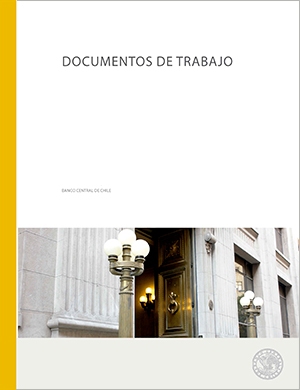Working papers N° 317: Institutions, Economic Policies and Growth: Lessons From the Chilean Experience
Publications
Working papers N° 317: Institutions, Economic Policies and Growth: Lessons From the Chilean Experience
Autor: Vittorio Corbo - Ex Autoridad , Leonardo Hernández
Description
Despite the reform effort of past decades, the economic and social performance of Latin American countries during the 1990s was quite disappointing. The exception was Chile, which grew at a rate near 7% for most of the decade and reduced its poverty rate quite significantly. This paper tries to explain this striking difference. Following the most recent literature that highlights the role played by institutions and policies on growth, we argue that Chile’s better performance was due to the country undertaking reforms that were much deeper and broader in scope than those in other Latin American countries. In the process, Chile ended up with stronger macro fundamentals and, most important, better institutions, all of which allowed it to face in a better way the adverse shocks of the 1990s. Based on a cross sectional econometric model estimated over the 1960- 2000 period, we argue that Chile’s better performance can be explained by the country’s better institutions and better policies in equal shares (East Asia’s better performance, on the other hand, is explained mainly by better economic policies). In addition, we estimate that by having institutions of quality similar to Chile’s, the average Latin American country could raise its per-capita GDP growth rate by about 1.6%, on average. Similarly, by adopting policies (financial development and RER overvaluation) similar to Chile’s, the average Latin American country could raise its per capita GDP growth rate in about 1.0%, on average. We conclude that, in order to attain higher growth, Latin American countries should move forward in their reform processes and put more emphasis on building and strengthening their institutions, which, based on Chile’s experience, can be modified (albeit slowly).
Working papers N° 317: Institutions, Economic Policies and Growth: Lessons From the Chilean Experience
Boxes and graphics

